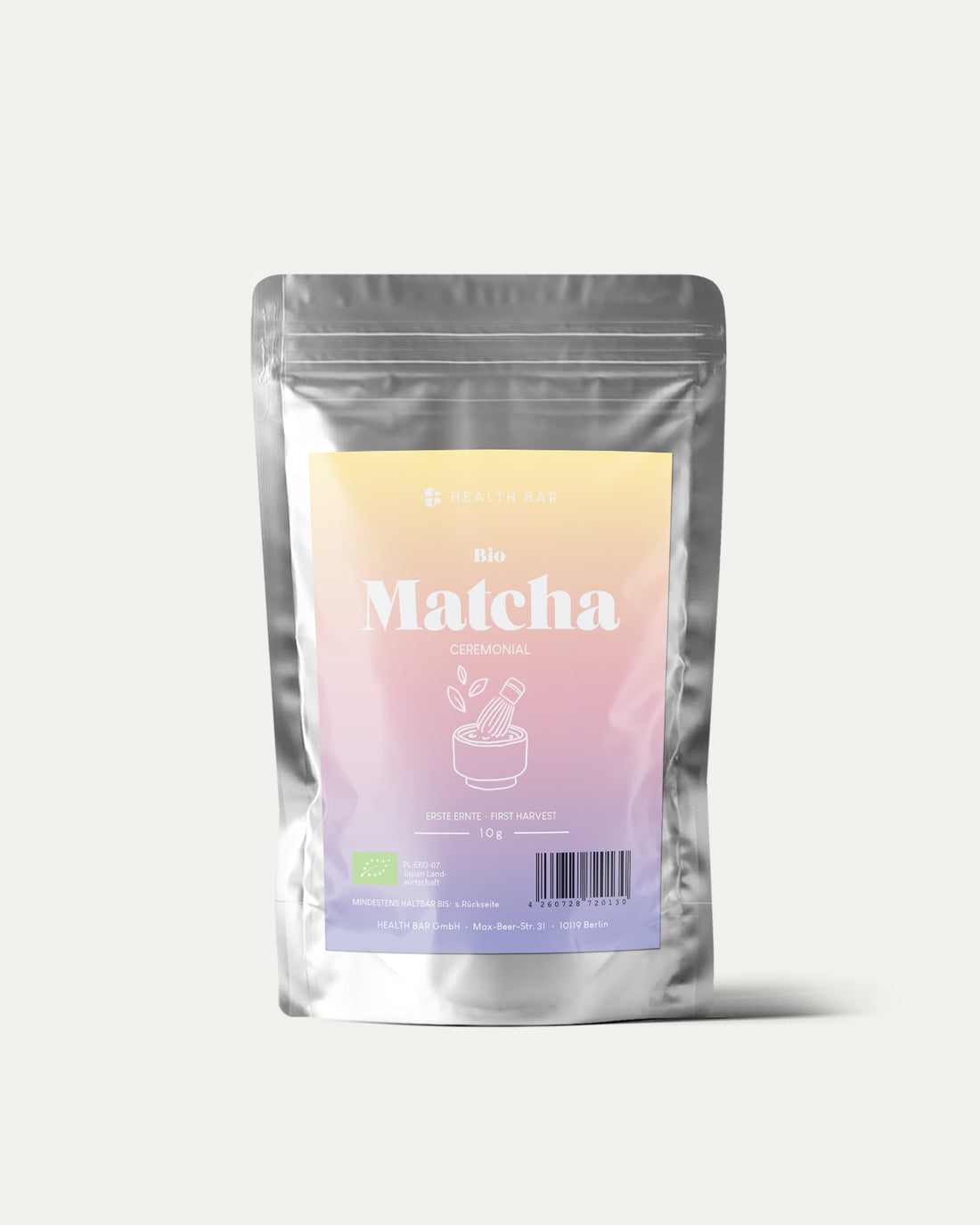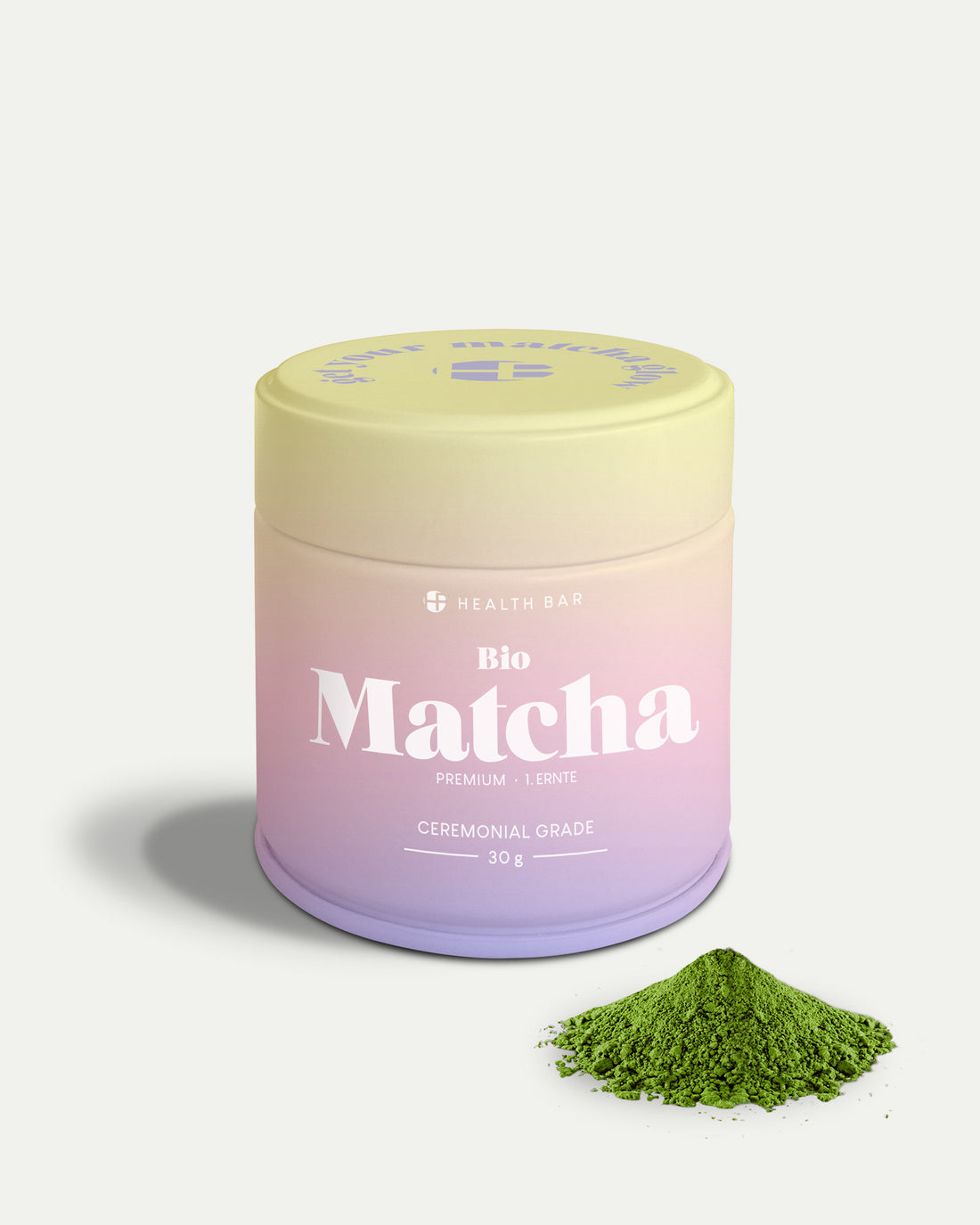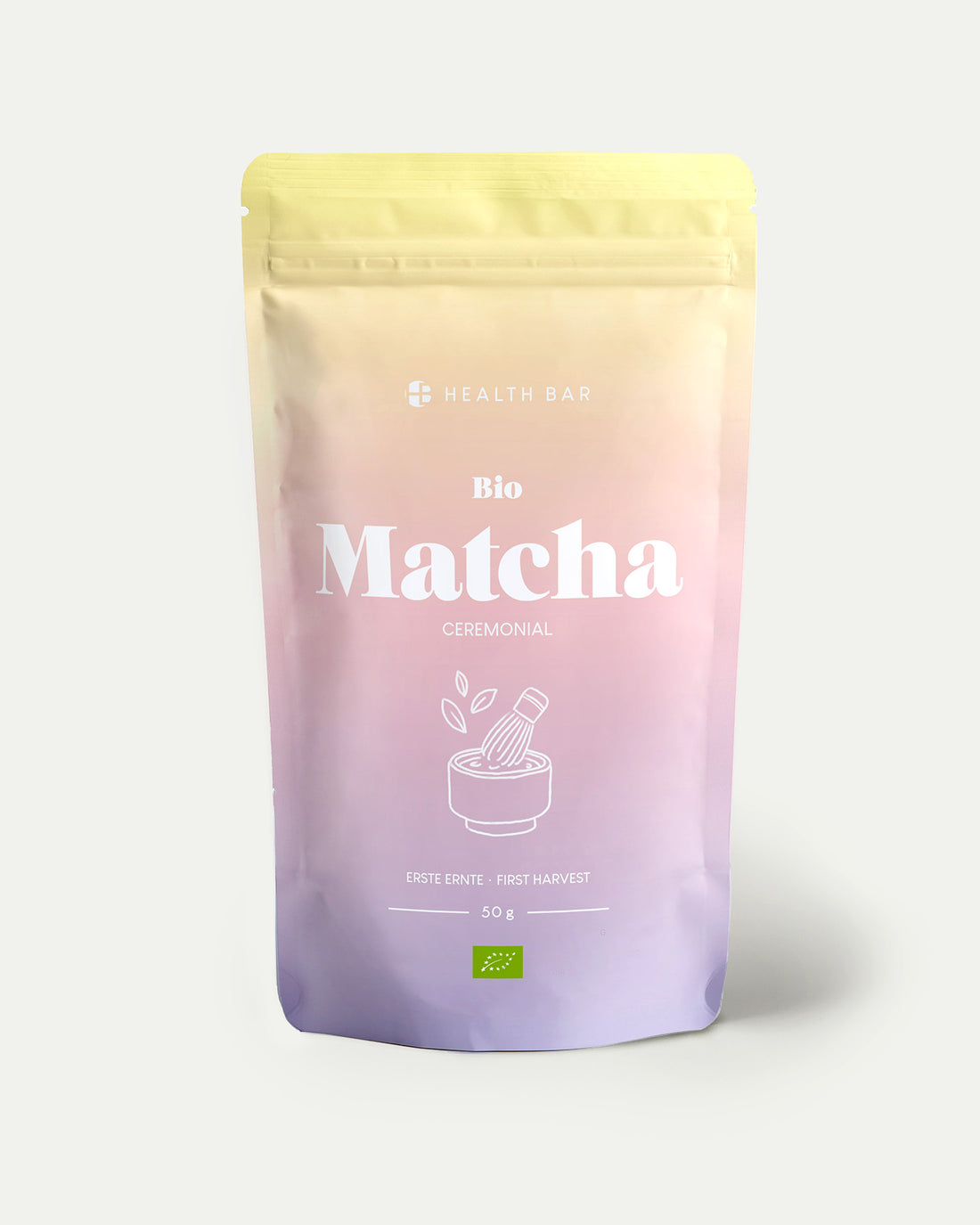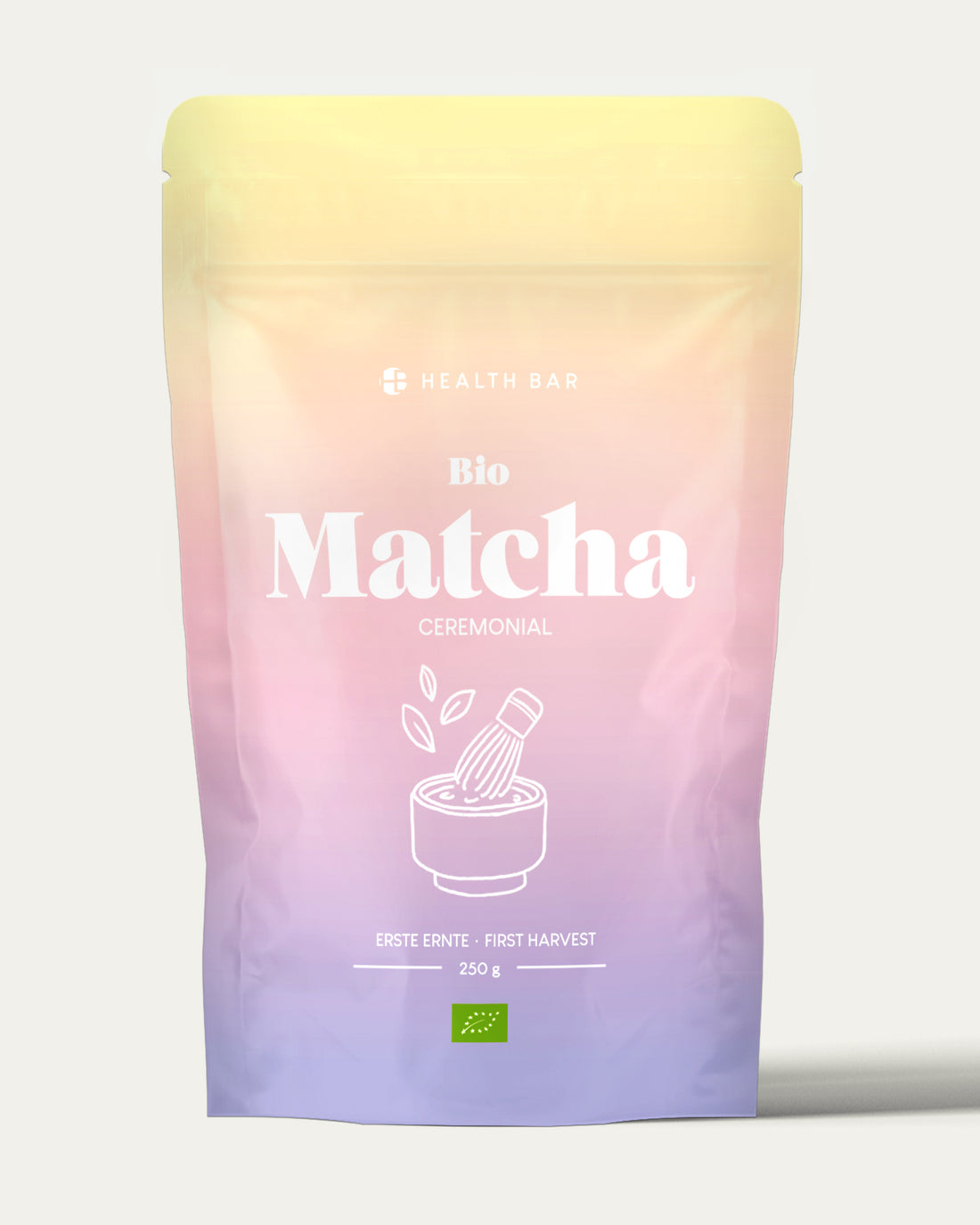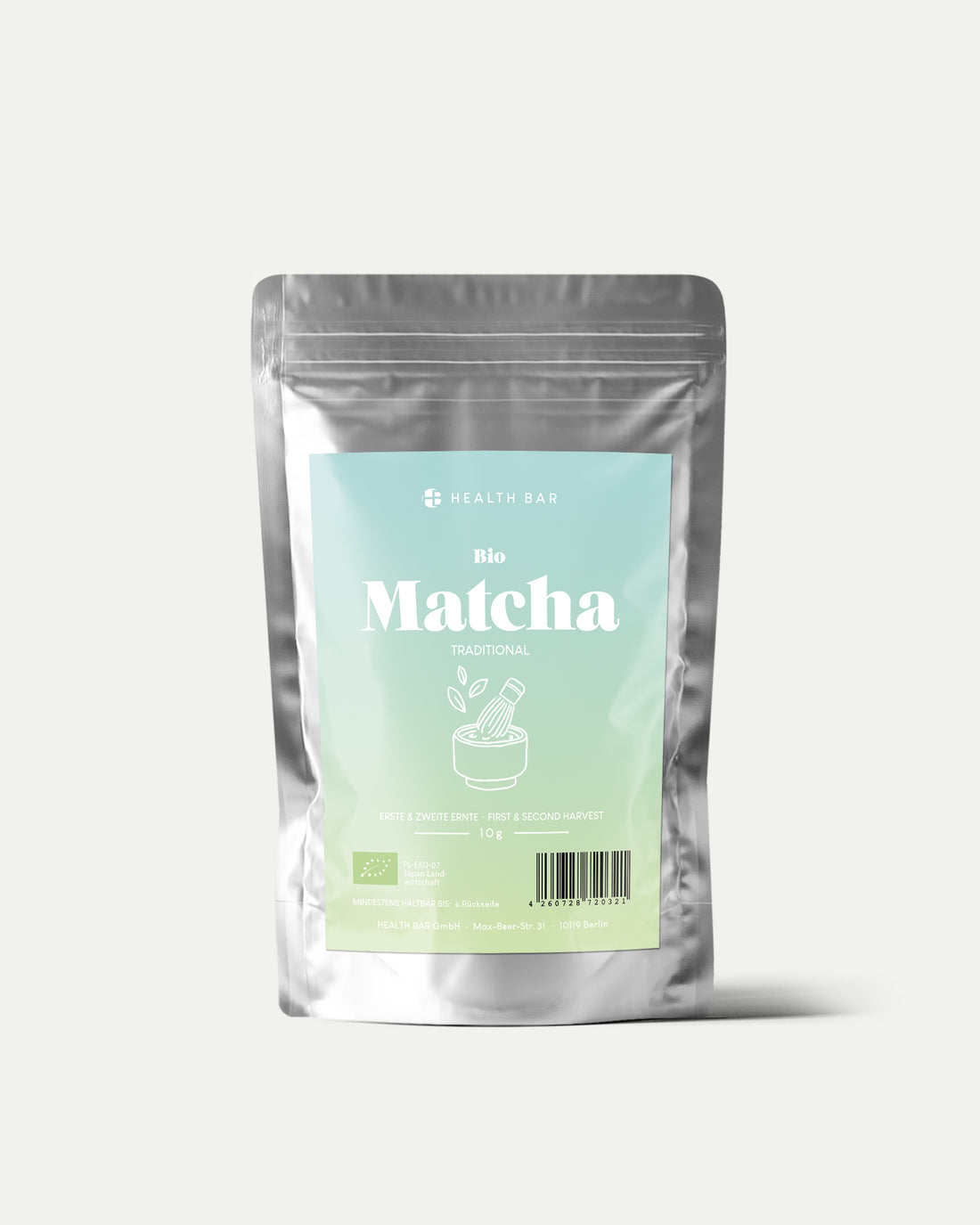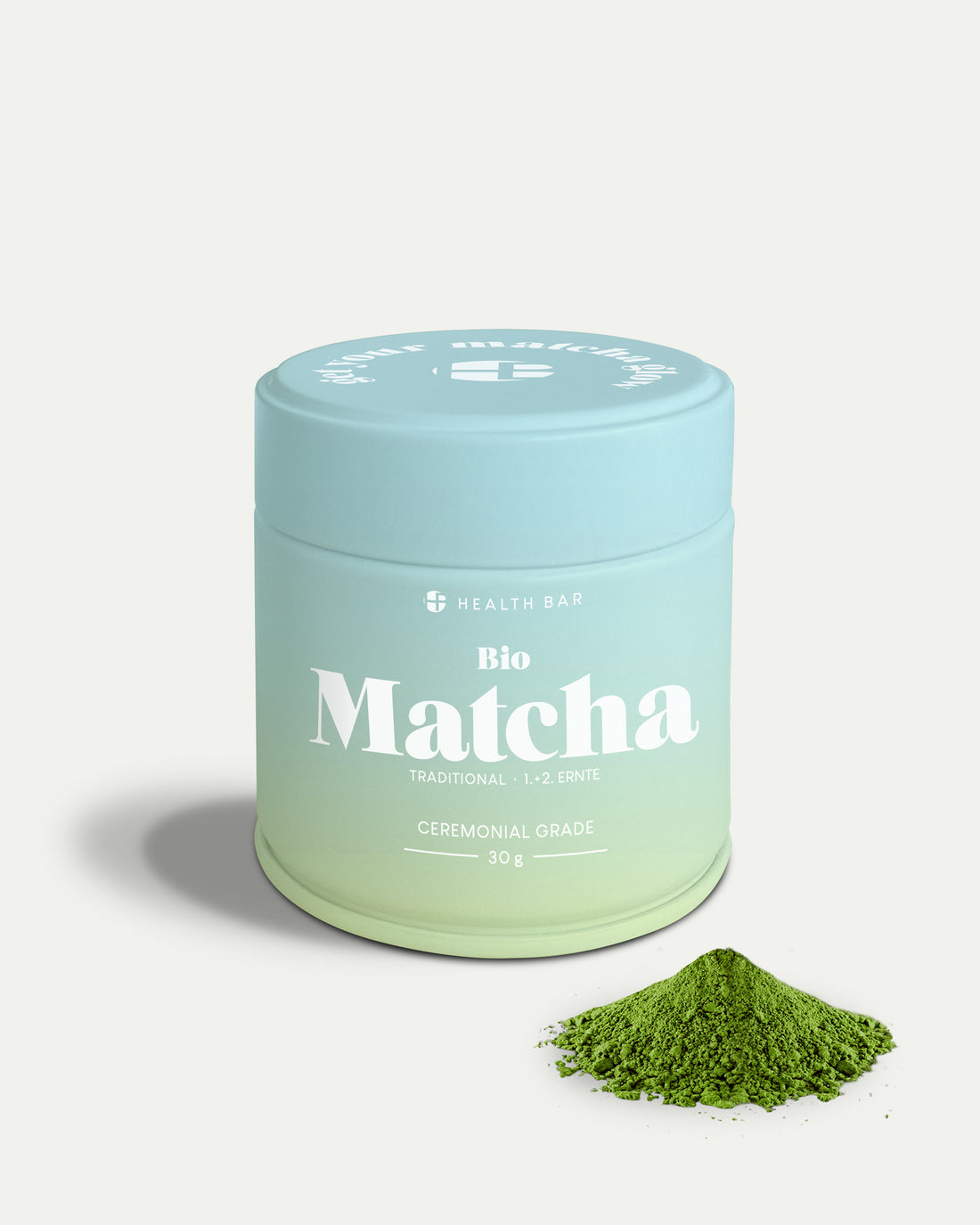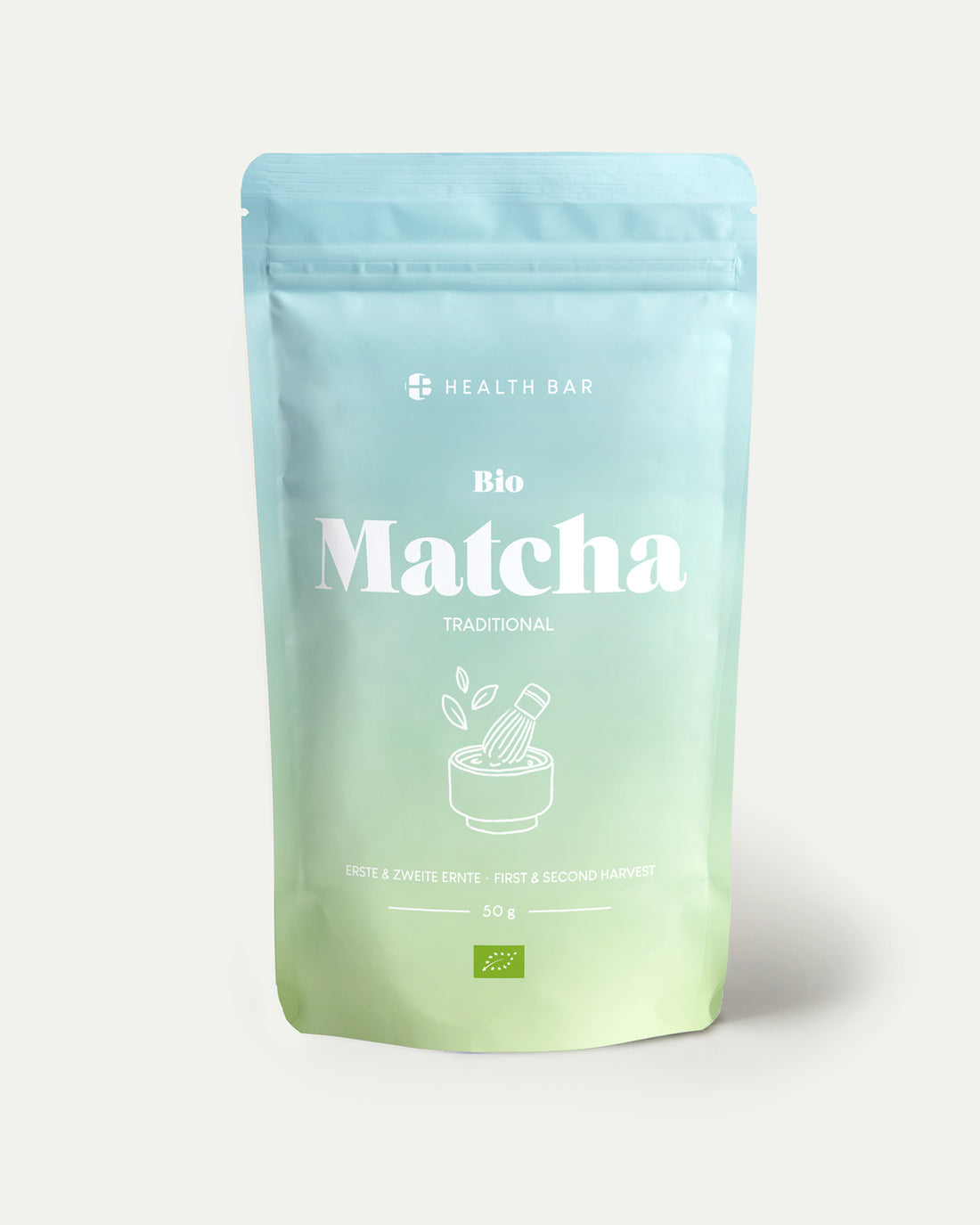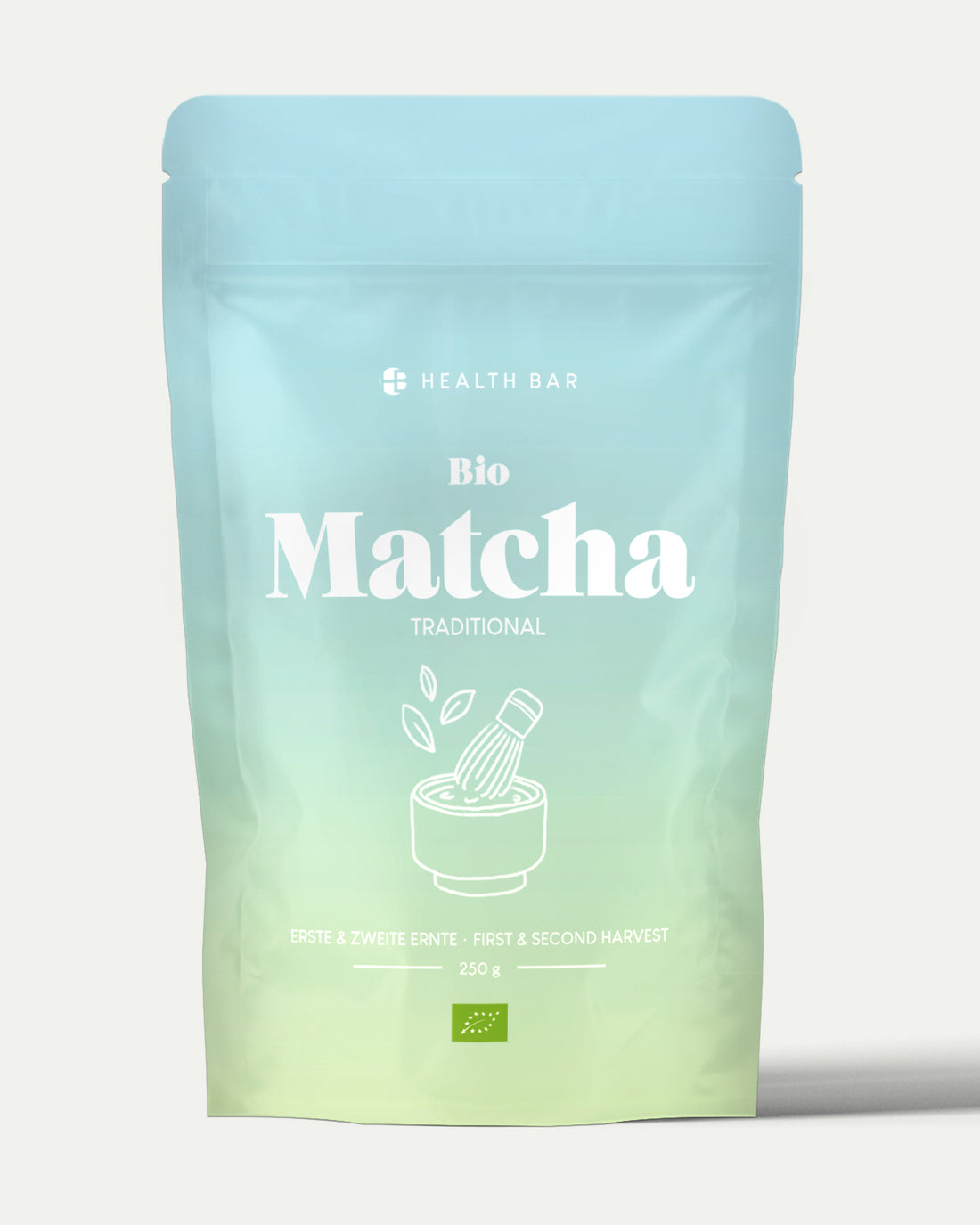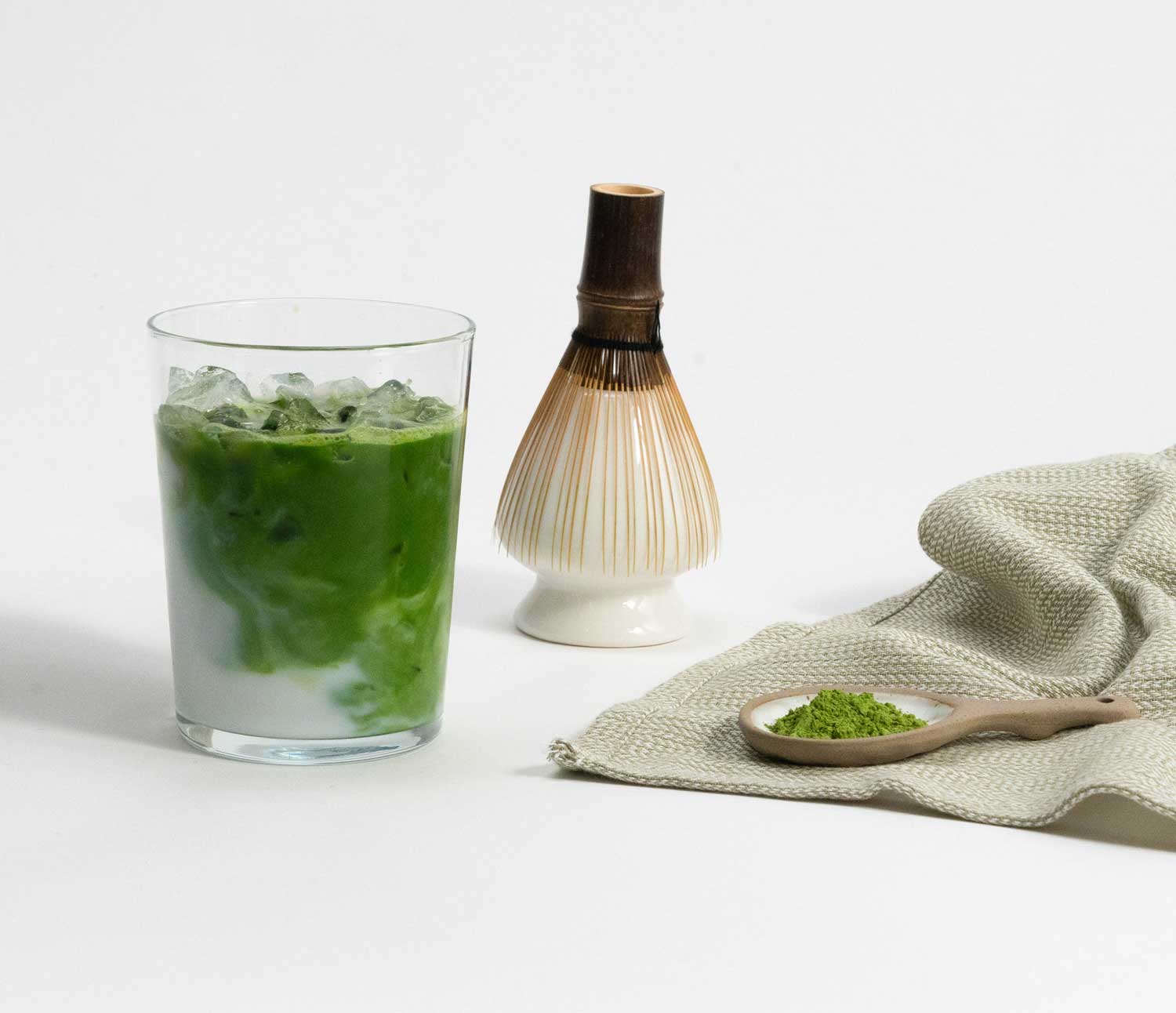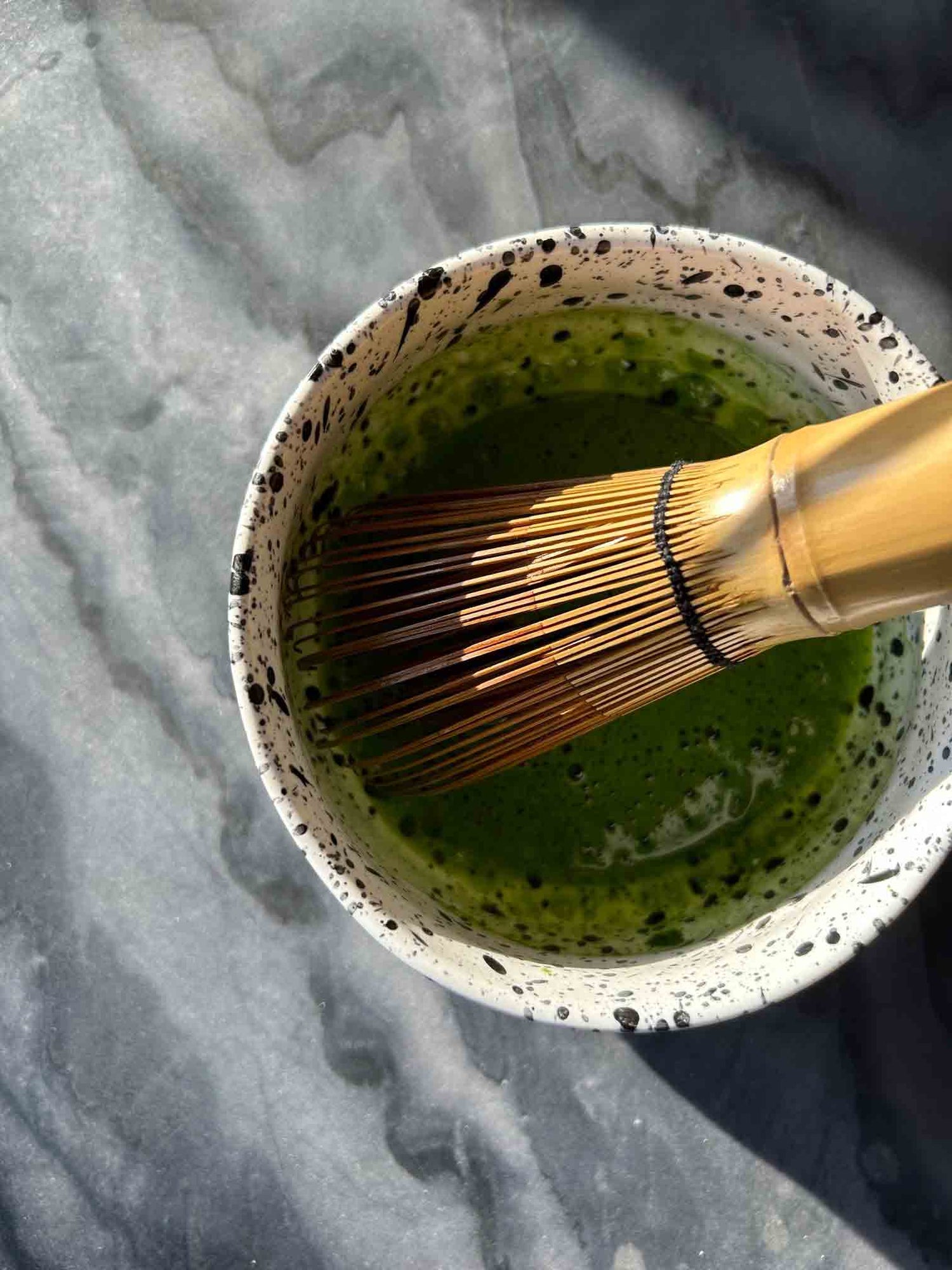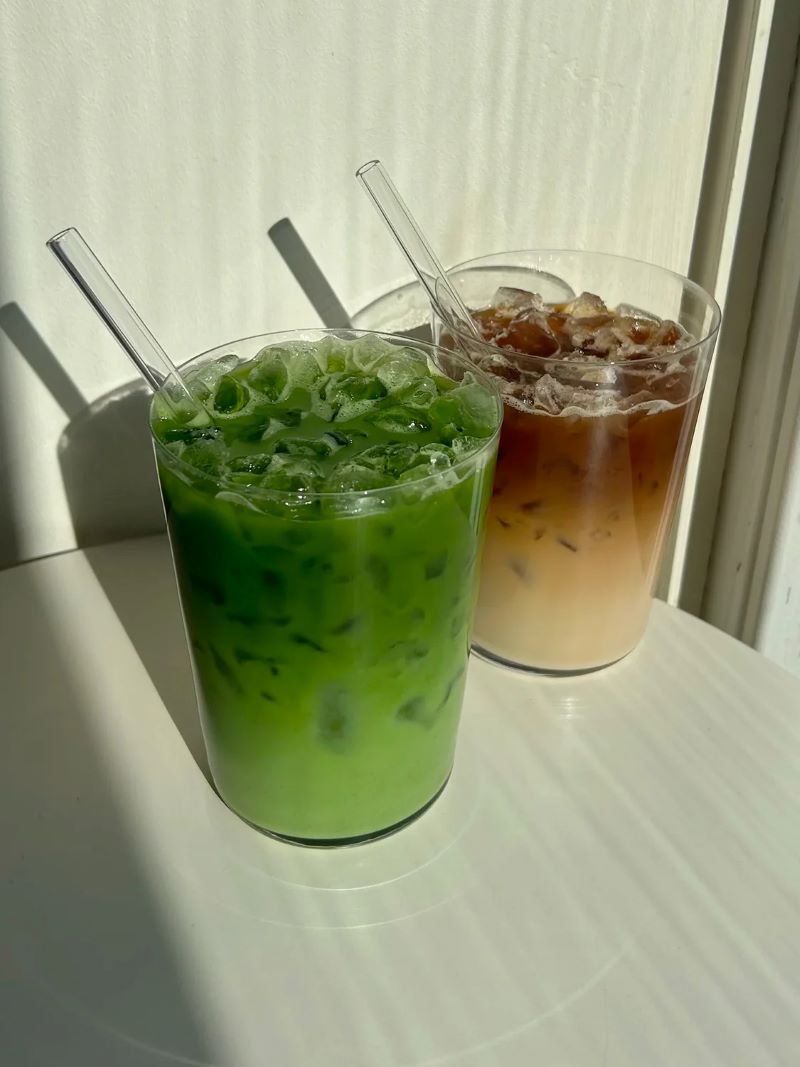
Matcha vs Coffee
Caffeine and Effects Compared
Coffee is the number 1 choice when we want to get going in the morning – after water, it is the most consumed beverage worldwide. But the green competition is on its heels: Although matcha tea is not yet as popular as coffee, the superfood is becoming increasingly trendy. Its delicate taste and its diversity are just two of many reasons why the fine green tea powder is conquering not only the hearts of tea lovers.
But what does Matcha have to do with coffee? Quite simply: Green tea also contains a certain stimulating substance. We reveal to you how roasted coffee beans and ground tea leaves are similar and yet different.
Good to know
Caffeine occurs differently in tea and coffee. The caffeine in Matcha is bound to polyphenols. These secondary plant compounds include a range of natural color, aroma, and defense substances that can be beneficial for you. You find them in fruits, vegetables, and nuts – and in high amounts in the tea plant. Many people have experienced that Matcha therefore awakens them more gently than coffee.
Did you know that cocoa also contains good plant compounds? Get a double dose by reaching for our vegan Matcha chocolate!
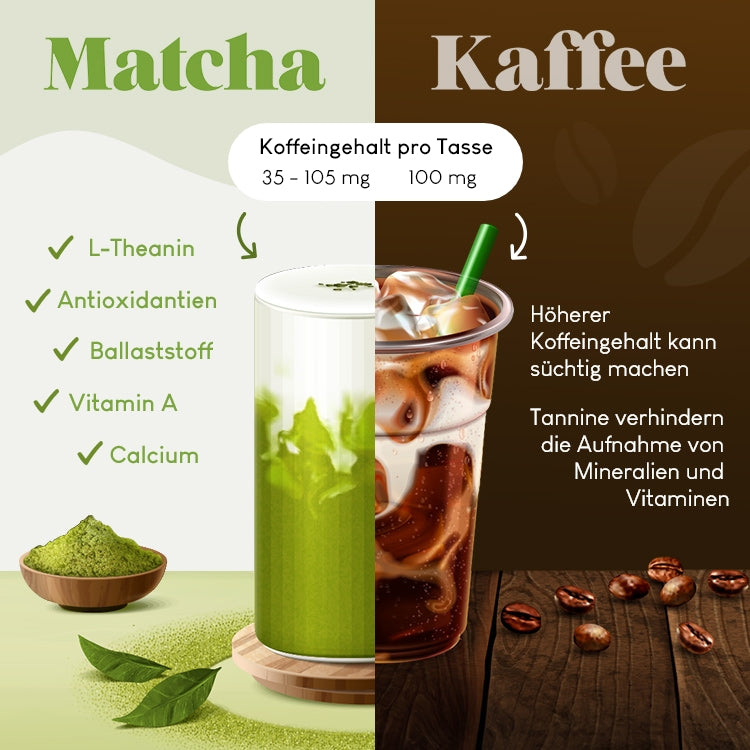
Does Matcha have caffeine?
Yes! In fact, not only coffee beans but also the real tea plant deliver caffeine, formerly also called theine.
The caffeine content of coffee and Matcha varies depending on the source plant, processing, and preparation method. 1 g high-quality Matcha powder contains about 35 mg of caffeine. For a cup of Matcha, you use between 1 and 3 g of Matcha. The following numbers are therefore only estimates.
Caffeine content per drink:
- 1 cup Matcha: 70 mg
- 1 cup of coffee: 100 mg
- 1 cup of espresso: 75 mg
Good to know: Ceremonial-Grade Matcha contains 3290 mg of caffeine per 100 g, more than Traditional-Grade Matcha with 2950 mg per 100 g.
Matcha instead of coffee – is it worth it!
Are you considering replacing your morning cup of coffee with Matcha? There are many good reasons for this. Because even though the roasted bean also contains antioxidants and other valuable substances, coffee consumption is not without risks.

What speaks against coffee consumption?
- Even a small amount of caffeine can destroy nerve cells.
- If you react hypersensitively, you may feel nervousness and heart palpitations up to panic attacks.
- Coffee can disrupt your sleep and cause anxiety.
- The drink is addictive. The more you drink, the more your caffeine tolerance increases – and you need higher and higher doses.
- The contained tannins prevent the absorption of minerals and vitamins. This also applies to black tea, by the way. Therefore, it is best to drink coffee between meals.
- Excessive coffee consumption can acidify your stomach and thereby even affect your skin condition.
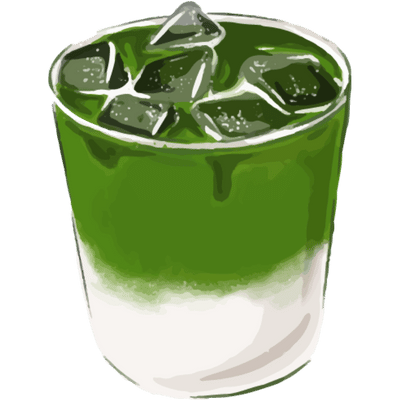
Matcha as a coffee substitute – the advantages
- Matcha contains L-theanine and much more antioxidants than coffee.
- It also provides you with fiber, vitamins A and C, and potassium.
- Because the tea plants grow in the shade, they contain especially high amounts of amino acids and chlorophyll. By the way, this is what gives them their bright green color.
- The matcha powder is made from whole leaves, which you drink along with it. This way, you benefit from the entire spectrum of plant compounds.
- Matcha can provide you just as much caffeine as coffee – depending on how much powder you use.
- Many enthusiastic matcha drinkers report that the green tea powder makes them more gently and longer-lasting alert. As a result, they remain significantly more relaxed.
Matcha tea and the effect of its caffeine
The caffeine content of Matcha and coffee is not that different. If you also use more matcha powder for the preparation, then you also drink more caffeine per cup. So if you want to reduce your stimulant consumption, you should prepare your matcha tea with a moderate amount of powder.
There is, however, a crucial difference between coffee and matcha: While you do not drink the ground coffee bean itself but only an infusion made from it, you enjoy the full range of its plant compounds with Matcha. Because the fine powder made from the leaves of the tea plant mixes with the water. This way, you not only take in the contained caffeine but also the entire spectrum of its valuable plant-based ingredients. Matcha supports you both in waking up and with its full package of green power ingredients! These include important amino acids, antioxidants, vitamins, minerals, and bitter compounds.
The Basics: Matcha & Coffee
It almost has a bit of a cult character: coffee junkie vs. tea fan – some are unapproachable before their first cup of deep black pick-me-up, others swear by the coziness of a fragrant, steaming cup of green tea on rainy days. Matcha bridges the gap between tea and coffee and is no longer just a traditional drink in the Land of the Rising Sun. Here come the quick facts:
-
Coffee
The coffee plant is mainly cultivated in Africa and South America. After roasting and grinding, its beans have turned into a powder that we brew with hot water – and that in infinitely different ways.
-
Matcha
The tea plant, in turn, is native to Asia, especially Japan and China. Not only green tea is made from its leaves, but also white and black tea. For high-quality Matcha, the most delicate leaves of the first harvest are processed into a silky powder and also brewed with water – however, you drink the powder as well. Matcha is also extremely versatile.
FAQ: Matcha vs. Coffee
Is Matcha a stimulant?
Yes, as long as caffeine works for you. Because just like coffee, Matcha also contains the stimulant. The substance can support you in the morning after getting up or during the afternoon slump when you need an energy boost.
How much caffeine is contained in a cup of Matcha?
You use approximately between 1 and 3 g of matcha powder to prepare a cup. This results in a caffeine content of around 35 to 105 mg per cup of Matcha.
Does Matcha contain less caffeine than coffee?
That depends on how you prepare your Matcha or your coffee. On average, a cup of Matcha (70 mg caffeine) contains about 30 mg less caffeine than a regular cup of coffee (100 mg caffeine).
Does the caffeine in Matcha work differently than in coffee?
Experience shows that Matcha can indeed be gentler on you than coffee. This is probably because the caffeine in the green tea powder is bound to polyphenols. It's best to try it yourself!
Is Matcha healthier than coffee?
Matcha provides you with caffeine as well as a wealth of valuable plant compounds, which you fully consume due to its special preparation method. Because you drink the entire leaf of the tea plant.
The different Matcha varieties
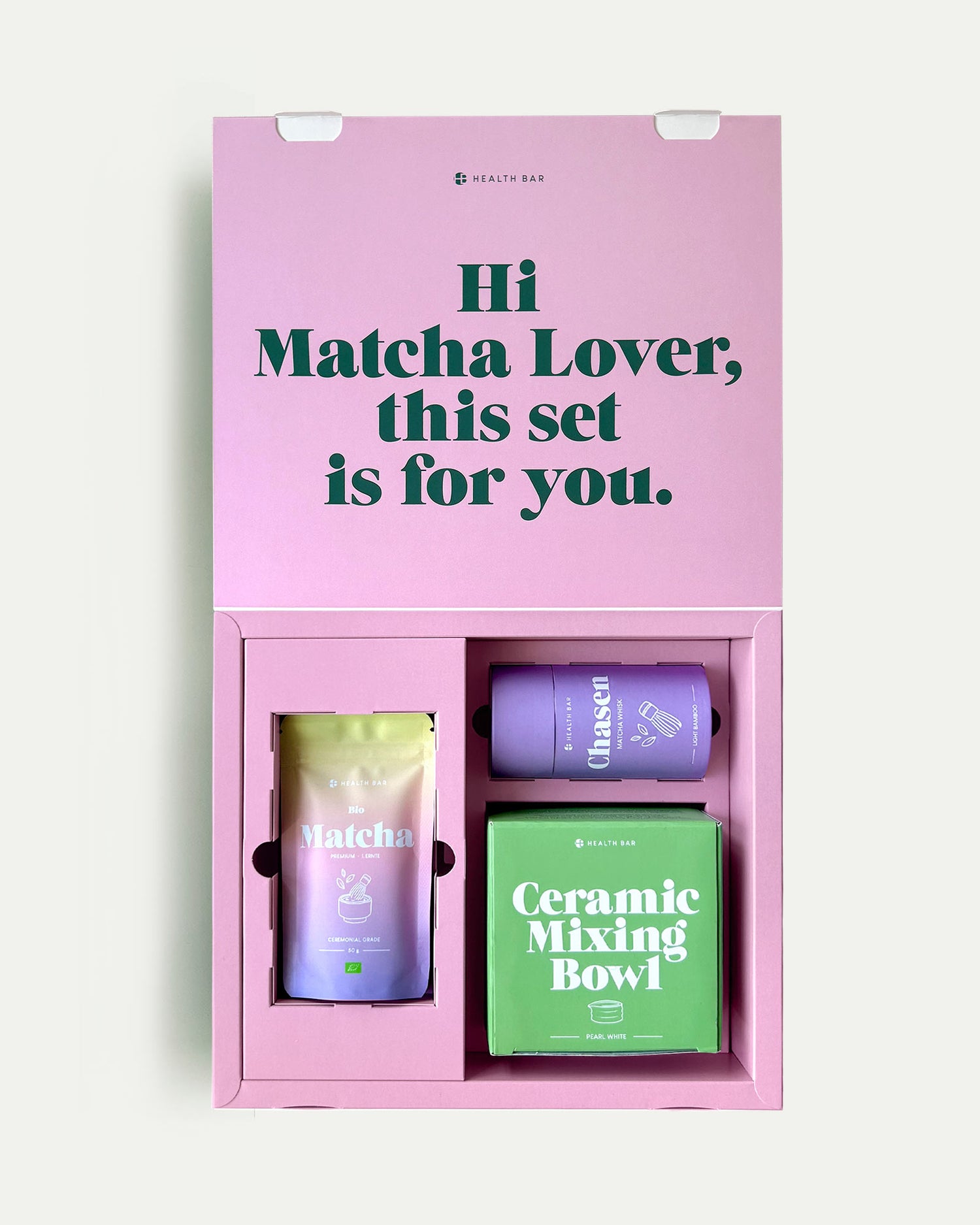
Our Matcha Kits
Perfect for switching to Matcha
- Organic Matcha Powder
- Matcha broom made of bamboo
- handcrafted matcha whisk
Also available as a Starter Kit and Travel Kit


